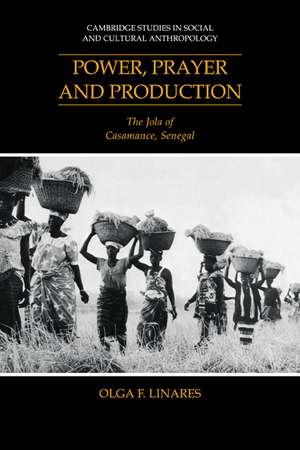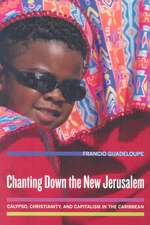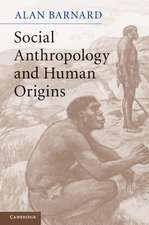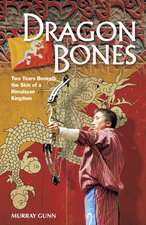Power, Prayer and Production: The Jola of Casamance, Senegal: Cambridge Studies in Social and Cultural Anthropology, cartea 82
Autor Olga F. Linaresen Limba Engleză Paperback – 16 sep 2007
Din seria Cambridge Studies in Social and Cultural Anthropology
-
 Preț: 245.24 lei
Preț: 245.24 lei -
 Preț: 195.76 lei
Preț: 195.76 lei -
 Preț: 177.96 lei
Preț: 177.96 lei -
 Preț: 283.25 lei
Preț: 283.25 lei -
 Preț: 284.39 lei
Preț: 284.39 lei -
 Preț: 358.13 lei
Preț: 358.13 lei -
 Preț: 282.87 lei
Preț: 282.87 lei -
 Preț: 399.21 lei
Preț: 399.21 lei -
 Preț: 397.08 lei
Preț: 397.08 lei -
 Preț: 347.28 lei
Preț: 347.28 lei -
 Preț: 295.95 lei
Preț: 295.95 lei -
 Preț: 307.62 lei
Preț: 307.62 lei -
 Preț: 280.15 lei
Preț: 280.15 lei -
 Preț: 372.80 lei
Preț: 372.80 lei -
 Preț: 411.24 lei
Preț: 411.24 lei -
 Preț: 326.27 lei
Preț: 326.27 lei -
 Preț: 281.30 lei
Preț: 281.30 lei -
 Preț: 323.81 lei
Preț: 323.81 lei -
 Preț: 278.62 lei
Preț: 278.62 lei -
 Preț: 353.63 lei
Preț: 353.63 lei -
 Preț: 174.55 lei
Preț: 174.55 lei -
 Preț: 406.71 lei
Preț: 406.71 lei -
 Preț: 326.27 lei
Preț: 326.27 lei -
 Preț: 282.26 lei
Preț: 282.26 lei -
 Preț: 436.68 lei
Preț: 436.68 lei -
 Preț: 327.22 lei
Preț: 327.22 lei -
 Preț: 414.46 lei
Preț: 414.46 lei -
 Preț: 284.78 lei
Preț: 284.78 lei -
 Preț: 289.78 lei
Preț: 289.78 lei -
 Preț: 284.17 lei
Preț: 284.17 lei -
 Preț: 283.03 lei
Preț: 283.03 lei -
 Preț: 279.00 lei
Preț: 279.00 lei -
 Preț: 398.16 lei
Preț: 398.16 lei -
 Preț: 340.24 lei
Preț: 340.24 lei -
 Preț: 277.65 lei
Preț: 277.65 lei -
 Preț: 461.13 lei
Preț: 461.13 lei -
 Preț: 390.90 lei
Preț: 390.90 lei -
 Preț: 284.78 lei
Preț: 284.78 lei -
 Preț: 347.50 lei
Preț: 347.50 lei -
 Preț: 281.49 lei
Preț: 281.49 lei -
 Preț: 278.24 lei
Preț: 278.24 lei
Preț: 392.94 lei
Nou
Puncte Express: 589
Preț estimativ în valută:
75.19€ • 78.92$ • 62.41£
75.19€ • 78.92$ • 62.41£
Carte tipărită la comandă
Livrare economică 10-24 aprilie
Preluare comenzi: 021 569.72.76
Specificații
ISBN-13: 9780521040358
ISBN-10: 0521040353
Pagini: 284
Dimensiuni: 153 x 229 x 16 mm
Greutate: 0.42 kg
Editura: Cambridge University Press
Colecția Cambridge University Press
Seria Cambridge Studies in Social and Cultural Anthropology
Locul publicării:Cambridge, United Kingdom
ISBN-10: 0521040353
Pagini: 284
Dimensiuni: 153 x 229 x 16 mm
Greutate: 0.42 kg
Editura: Cambridge University Press
Colecția Cambridge University Press
Seria Cambridge Studies in Social and Cultural Anthropology
Locul publicării:Cambridge, United Kingdom
Cuprins
List of illustrations; List of tables; Acknowledgements; Note on orthography; Introduction: ideology and agrarian change; Part I. The Political Economy of Sambujat: 1. The power of the spirit-shrines; 2. Rice fields and labour relationships; Conclusions to part I; Part II. At the Crossroads: The Kujamaat Jola of Jipalom: 3. Islamization and the introduction of a cash crop; 4. The impact on social and productive relations; Conclusions to part II; Part III. Manding Models and Fatiya Mores: 5. Ideology and legitimation; 6. Social relations of production restructured; Conclusions to part III; Epilogue: the Jola in the present national scene; Notes; References; Index.
Descriere
In this study, the author examines the reasons behind startling contrasts in the organization of agricultural tasks among three Jola communities.














